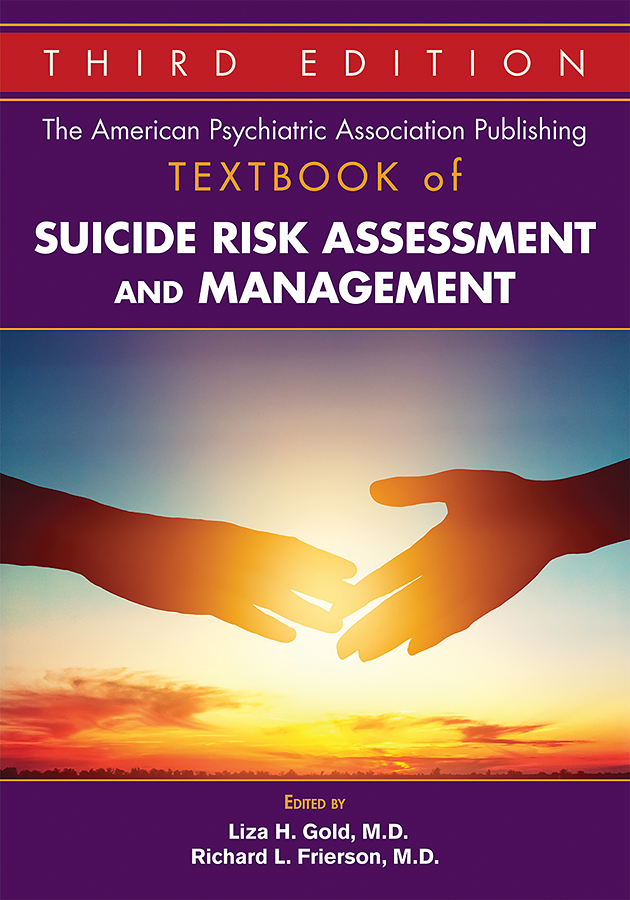Chapter 29.Suicide and Firearms
Sections
Excerpt
Firearms are the most common means of suicide in the United States; suicide is also the most common category of death associated with firearms. For the past decade, firearms have consistently been associated with more suicide deaths than all other means of suicide combined. In 2017, 23,854 people died from firearm suicide. This number represents 60% of all deaths due to firearm injury, 50% of all deaths from suicide, and 44.6% of teen deaths from suicide (Centers for Disease Control and Prevention 2019).
Access content
To read the fulltext, please use one of the options below to sign in or purchase access.- Personal login
- Institutional Login
- Sign in via OpenAthens
- Register for access
-
Please login/register if you wish to pair your device and check access availability.
Not a subscriber?
PsychiatryOnline subscription options offer access to the DSM-5 library, books, journals, CME, and patient resources. This all-in-one virtual library provides psychiatrists and mental health professionals with key resources for diagnosis, treatment, research, and professional development.
Need more help? PsychiatryOnline Customer Service may be reached by emailing [email protected] or by calling 800-368-5777 (in the U.S.) or 703-907-7322 (outside the U.S.).



